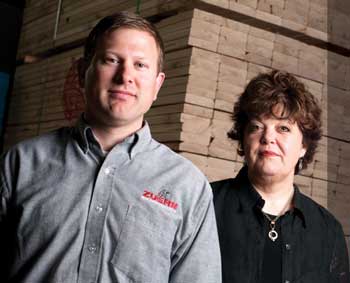Craig Wisehart
Manager, Seward Lumber, Seward, Neb.
In his small town just west of Lincoln, Craig Wisehart doesn’t just know all the contractors he serves–he’s pretty good friends with them, too. Hence, Wisehart has found at times that employing guilt tactics resulted in past due accounts being paid up.
When an account goes 90 days past due, Wisehart puts stickers on the monthly invoices to customers. The stickers are polite reminders that the account needs to be paid up. Wisehart continues to place them on invoices up until the 210-day mark.
“Once someone gets the second or third one, I usually get a payment,” Wisehart says.
Wisehart believes the most important factor with regard to getting paid is maintaining communication lines with the past-due customer. In one case, he said he and his assistant took a couple of builders–one of whom was past due on his bills–to play golf. Wisehart said he regards the builder as a friend, so the invitation to golf would have been extended regardless of the guy’s status.
But as it happens, after they finished the round, the builder pulled out his checkbook and wrote a check for $3,000–pretty much all that he owed.
Wisehart says he doesn’t know whether it was the round of golf that did it, or whether the guy just chose that moment to pay because he was going to do so anyway, and figured it would be the next time he’d see Wisehart. In any case, the check cleared and all was well.
He also thinks it’s wise to have a third party that can be referred to when discussing past-due accounts with customers. Seward Lumber has always been investor-owned rather than family-controlled, and approximately 50 people hold shares in the company now, many of them based in Seward. So Wisehart uses the board as a scapegoat from time to time, saying to the builder in effect, “you and I are friends, and I understand your challenges today, but the board of directors is on my back, pushing me to collect on these bills.” The tactic works, he says.

